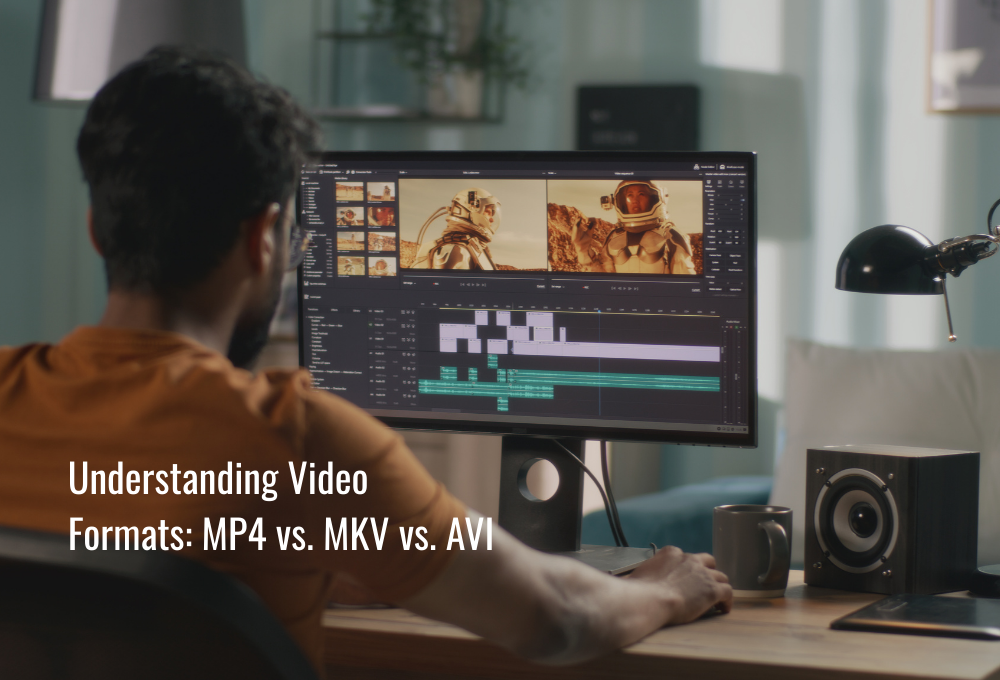
MP4 vs. MKV vs. AVI: Understanding Video Formats for Your Downloads
Have you ever downloaded a video and wondered why some files are so big while others are tiny, even if the video looks the same? Or why one video plays perfectly on your phone, but another gives you a "file not supported" error?
The answer lies in video file formats. It can sound technical, but understanding the difference is key to getting the right video for your needs every time. In this simple guide, we'll break down the three most common video formats—MP4, MKV, and AVI—and explain why one of them has become the universal standard.
What Even Is a "Video Format"?
Think of a video file format (like .mp4 or .mkv) as a container. This container holds three main things inside:
-
The Video: The actual visual data, compressed using a specific method called a codec (like H.264 or H.265).
-
The Audio: The sound track, also compressed with its own codec.
-
Other Stuff: This can include subtitles, chapter markers, and other metadata.
The format dictates what the container can hold and how it organizes that data. The choice of format can dramatically affect the file size, video quality, and, most importantly, which devices can play it.
A Simple Breakdown of the Three Main Formats
MP4: The Universal Standard
If you've downloaded a video in the last 10 years, it was probably an MP4.
-
Pros:
-
Universal Compatibility: MP4 is supported by virtually every device and platform in the world—phones, tablets, smart TVs, gaming consoles, and all web browsers. This is its biggest strength.
-
Small File Size: It uses efficient compression, allowing for excellent video quality in a relatively small file. This is why it’s the default for streaming platforms.
-
Versatile: It can hold video, audio, and subtitles all in one file.
-
-
Cons:
-
Lossy Compression: While the quality is great, some data is lost during the compression process. For most users, this difference is unnoticeable.
-
MKV: The Movie-Lover’s Choice
The Matroska Video format is a popular choice for movie and TV show collectors.
-
Pros:
-
Feature-Rich: An MKV file can hold multiple audio tracks (for different languages), multiple subtitle tracks, and chapter markers—all in a single file. This is perfect for high-quality movie rips.
-
Excellent Quality: It can handle high-resolution video and lossless audio tracks, making it a favorite for audiophiles and cinephiles.
-
-
Cons:
-
Limited Compatibility: MKV is not universally supported. You often need a specific media player (like VLC) to play it, and it won't work on many older devices or in web browsers without a special plug-in.
-
Large File Size: Because it holds more data and can use less compression, MKV files are typically much larger than MP4 files.
-
AVI: The Old-School Heavyweight
Developed by Microsoft in the early 90s, AVI is one of the oldest video formats still in use.
-
Pros:
-
High Quality: AVI can store uncompressed video, which means it can have very high quality. This was a major selling point in its day.
-
-
Cons:
-
Massive File Size: Uncompressed AVI files are enormous, making them impractical for sharing online or storing on a standard hard drive.
-
Outdated: It doesn't natively support modern features like subtitles or streaming, and it’s generally less efficient than newer formats.
-
Why Every Video Downloader Prioritizes MP4
At Every Video Downloader, our goal is to give you a simple, reliable solution. That's why our tool defaults to downloading videos as MP4 files. This ensures that the videos you download:
-
Are Universally Compatible: They will play on your phone, laptop, smart TV, or any other device you use.
-
Have an Optimized File Size: You get great quality without taking up tons of storage space.
-
Are Perfect for Any Need: From a short Instagram Reel to a long YouTube video, MP4 is the ideal format for everything from sharing to archiving.
We choose the format that gives you the best experience, so you don't have to worry about the technical details.
Frequently Asked Questions
Q: Can I download a video in MKV format with your tool?
A: Currently, our service is focused on providing MP4 as the standard format for its universal compatibility.
Q: Does downloading a video in MP4 reduce its quality?
A: Our downloader retrieves the video in the highest quality available from the source and saves it as an MP4, so you can enjoy excellent quality without the massive file size of other formats.
Related post